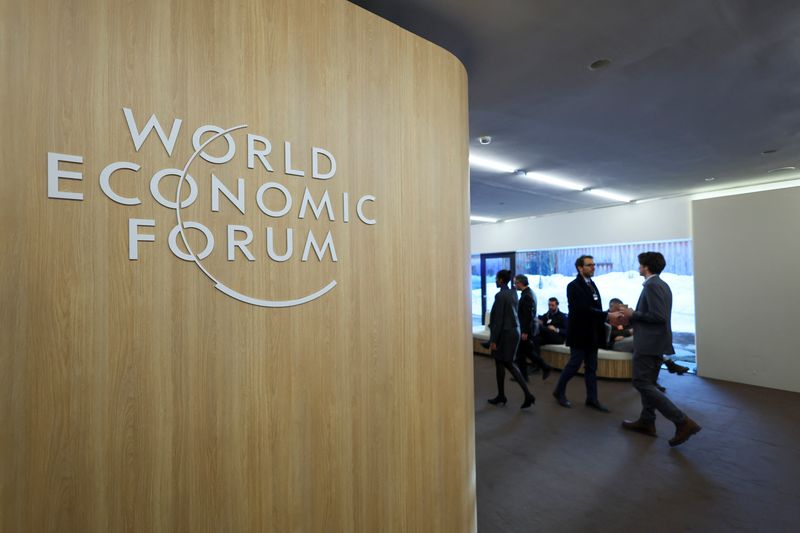
(This Jan. 15 story has been refiled with an amended comment from the WEF Managing Director in paragraph 4)
By Elisa Martinuzzi
LONDON (Reuters) – Armed conflict is the top risk in 2025, a World Economic Forum (WEF) survey released on Wednesday showed, a reminder of the deepening global fragmentation as government and business leaders attend an annual gathering in Davos next week.
Nearly one in four of the more than 900 experts surveyed across academia, business and policymaking ranked conflict, including wars and terrorism, as the most severe risk to economic growth for the year ahead.
Extreme weather, the no. 1 concern in 2024, was the second-ranked danger.
“Rising geopolitical tensions and a fracturing of trust are driving the global risk landscape,” WEF Managing Director Mirek Dusek said in comments accompanying the report. “In this complex and dynamic context, leaders have a choice: to find ways to foster collaboration and resilience, or face compounding vulnerabilities.”
The WEF gets underway on Jan. 20 and Donald Trump, who will be sworn in as the 47th president of the United States, will address the meeting virtually on Jan. 23. Ukraine President Volodymyr Zelenskiy will attend the meeting and give a speech on Jan. 21, according to the WEF organisers.
Advisers to Trump concede that the Ukraine war will take months or even longer to resolve, Reuters reported on Wednesday, a sharp reality check on his pledge to strike a peace deal on his first day in the White House.
Among other global leaders due to attend the Davos meeting are European Commission President Ursula von der Leyen and China’s Vice Premier Ding Xuexiang.
Syria, the “terrible humanitarian situation in Gaza” and the potential escalation of the conflict in the Middle East will be a focus at the gathering, according to WEF President and CEO Borge Brende.
Negotiators were hammering out the final details of a potential ceasefire in Gaza on Wednesday, following marathon talks in Qatar. The threat of misinformation and disinformation was ranked as the most severe global risk over the next two years, according to the survey, the same ranking as in 2024.
Over a 10-year horizon environmental threats dominated experts’ risk concerns, the survey showed. Extreme weather was the top longer-term global risk, followed by biodiversity loss, critical change to earth’s systems and a shortage of natural resources.
Global temperatures last year exceeded 1.5 degrees Celsius (2.7 degrees Fahrenheit) above the pre-industrial era for the first time, bringing the world closer to breaching the pledge governments made under the 2015 Paris climate agreement.
A global risk is defined by the survey as a condition that would negatively affect a significant proportion of global GDP, population or natural resources. Experts were surveyed in September and October.
The majority of respondents, 64%, expect a multipolar, fragmented global order to persist.

